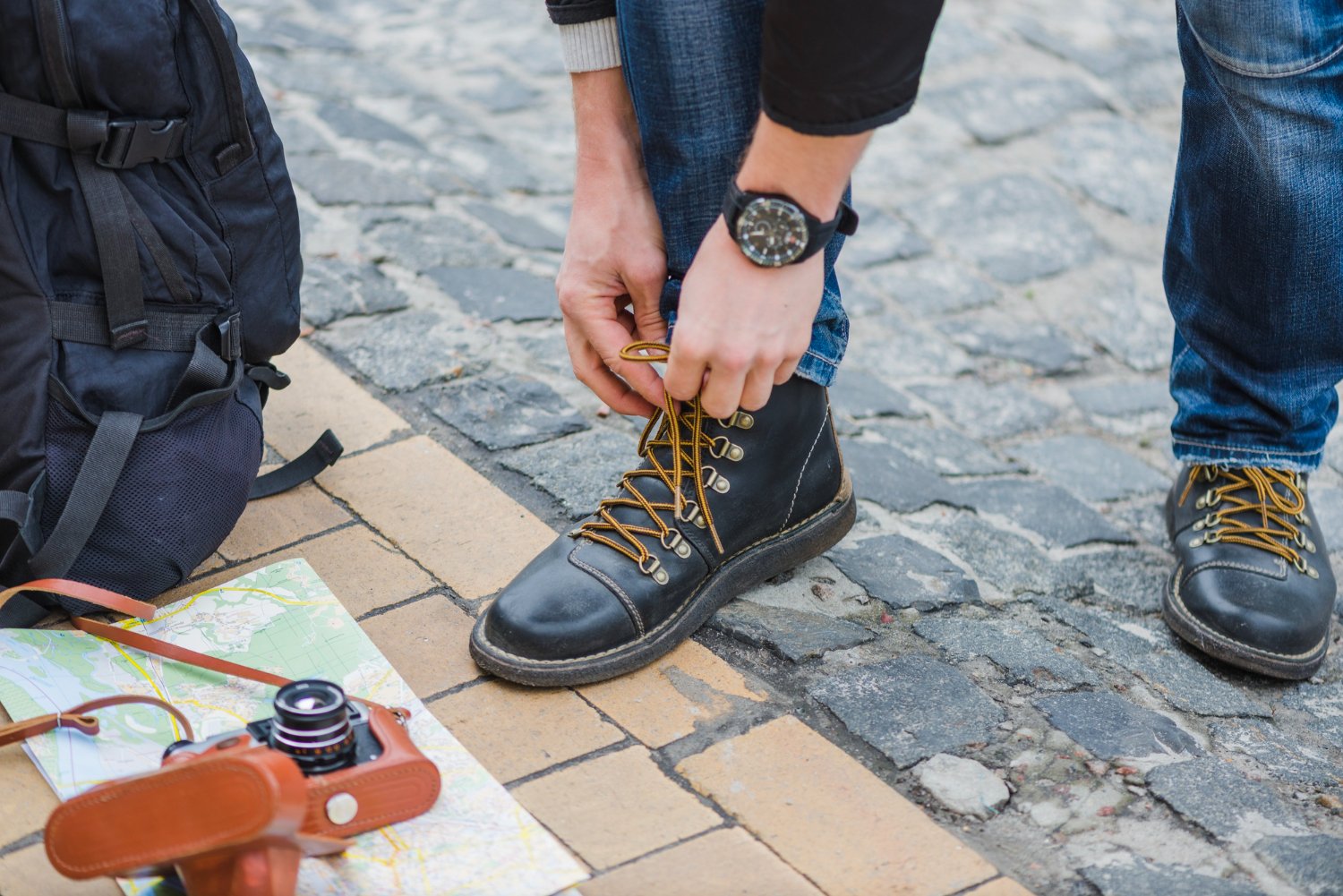Introduction
How Long Do Shoes Last? In our daily life, shoes are an essential item. Shoes fulfill a variety of functions and meet a range of needs, from casual strolling in cozy sneakers to a night out in gorgeous heels. But shoes wear out eventually, and continuing to wear them after their best might cause pain or even damage. How long do shoes last, then, and is there anything you can do to extend their lifespan?
Factors Influencing Shoe Lifespan
Material Quality
The durability of shoes is largely dependent on the quality of the materials used in their production. For example, high-quality leather typically lasts longer than synthetic materials. In the same way, high-quality rubber soles withstand abrasion better than less expensive counterparts. Purchasing shoes constructed with premium materials will typically yield a longer-lasting item.
Usage and Activity Level
Your shoes’ lifespan is strongly impacted by how frequently and how hard you wear them. Shoes used frequently for strenuous sports like trekking or running will wear out more quickly than shoes worn infrequently for leisurely excursions. To maximize the lifespan of your shoes, it’s critical to match the right shoe type to your activity level.
Shoe Type
Shoes come in a variety of styles with differing levels of durability. Running shoes, for example, are made to endure repeated impacts, but they might not be as strong for regular use. Contrarily, dress shoes are made with style and seldom use in mind, which usually means that they last longer than athletic shoes.
Maintenance and Care
How Long Do Shoes Last: Your shoes’ lifespan can be considerably increased with proper upkeep and care. Shoes can retain their materials and structure with proper washing, conditioning, and storing. Ignoring these procedures can cause premature deterioration, shortening the shoes’ overall life
Average Lifespan of Different Shoe Types
Running Shoes
Running shoes are designed to absorb shock and provide support during high-impact activities. On average, running shoes last between 300 to 500 miles, depending on the runner’s weight, running style, and terrain. Regular runners should consider replacing their shoes every 6 to 12 months to maintain optimal performance and prevent injury.
Casual Sneakers
Casual sneakers, worn for everyday activities, typically last longer than running shoes. With moderate use, a good pair of sneakers can last between 1 to 2 years. However, if worn daily and subjected to heavy use, their lifespan may be closer to a year.
Dress Shoes
Dress shoes, made from leather and designed for formal occasions, can last for several years with proper care. High-quality leather dress shoes can endure 5 to 10 years or more, especially if they are resoled and maintained regularly. Investing in premium dress shoes and taking good care of them can result in a long-lasting wardrobe staple.
Boots
Boots are designed to endure harsh environments, especially those intended for trekking or work. Boots have a lifespan of two to ten years, depending on the material and workmanship. Particularly leather boots can last a long time if they are often cleaned, conditioned, and waterproofed.
Sandals and Flip-Flops
Compared to other shoe styles, sandals and flip-flops have a shorter lifespan since they are frequently composed of lighter materials. They typically last anywhere from six months to two years with constant use. They are more prone to wear and tear due to their softer soles and simple construction, especially if they are worn regularly in tough environments.
Signs It’s Time to Replace Your Shoes
Visible Wear and Tear
How Long Do Shoes Last? Visible wear and tear is one of the most telling indicators that it’s time to replace your shoes. Examine the shoes for holes in the upper cloth, ragged stitching, and worn-out soles. It’s time for a new pair of shoes if the damage has rendered them unusable or if they no longer seem decent.
Loss of Support and Cushioning
Your feet and joints are protected by the support and cushioning that shoes are meant to offer. The midsole’s substance may shrink and lose its capacity to absorb impact over time. It’s obvious that your shoes need to be replaced if you find that they are no longer as supportive or comfy.
Foot Pain and Discomfort
Wearing shoes that are no longer functional can cause discomfort and agony in the feet. Wear-out shoes may not provide enough support if you notice new or worsening pain in your knees, ankles, or feet. You can feel more comfortable overall and these problems may be resolved by replacing them.
Bad Odor
Sweat and bacteria buildup can cause shoes to smell bad over time. It might be time to retire those shoes if routine cleaning and deodorizing aren’t enough to mask the odor. A lingering smell frequently indicates that the interior materials have degraded and are no longer cleanable.
Tips to Extend the Lifespan of Your Shoes
Proper Cleaning and Maintenance
Cleaning your shoes on a regular basis aids in removing debris and filth that over time may deteriorate the materials. Utilize cleaning agents suitable for the material of the shoe and adhere to the guidelines provided by the manufacturer. Leather shoe conditioning and waterproofing treatments are additional ways to preserve their longevity and aesthetic appeal.
Using Shoe Trees
A great purchase to prolong the life of your shoes is a shoe tree. They absorb moisture, keep the shoe from creasing, and assist preserve its shape. To preserve your shoes in perfect condition, place shoe trees in them after each wear.
Rotating Your Shoes
If you wear the same shoes every day, they may become worn out more quickly. The longevity of each pair is increased by allowing them to rest and recuperate by switching between other pairs. This procedure is particularly crucial for heavily used work and athletic shoes.
Storing Shoes Properly
Maintaining the integrity of your shoes requires proper storage. To stop fading and material degradation, keep them out of direct sunlight and in a cool, dry environment. When not in use, shoe boxes or bags can help shield them from dust and other harm.
Conclusion: How Long Do Shoes Last?
How Long Do Shoes Last: Understanding how long shoes last and the factors that influence their lifespan can help you make informed decisions about your footwear. By paying attention to signs of wear, investing in high-quality shoes, and following proper maintenance practices, you can enjoy comfortable and long-lasting shoes. Remember, your feet deserve the best, so take good care of them by ensuring your shoes are always in top condition.
Frequently Asked Questions
Q:1 How often should I replace my running shoes?
A:1 Running shoes should be replaced every 300 to 500 miles or every 6 to 12 months, depending on your running frequency and conditions. Regularly inspecting the shoes for signs of wear and paying attention to any discomfort can also guide your decision.
Q:2 Can I repair my shoes to extend their life?
A:2 Yes, many types of shoes can be repaired to extend their life. Resoling, replacing worn-out insoles, and fixing stitching are common repairs that can add years to your shoes. Consult a professional cobbler for repairs to ensure the best results.
Q:3 Does the brand of shoe affect its lifespan?
A:3 The brand can influence the quality and durability of shoes, but it’s not the only factor. High-end brands often use superior materials and craftsmanship, resulting in longer-lasting shoes. However, proper care and maintenance are equally important regardless of the brand.
Q:4 How do I know if my shoes are affecting my health?
A:4 If you experience persistent foot pain, discomfort, or other issues like blisters and calluses, your shoes may be to blame. Pay attention to how your feet feel during and after wearing your shoes. If discomfort persists, it may be time for a new pair or a different style better suited to your needs.
See More



